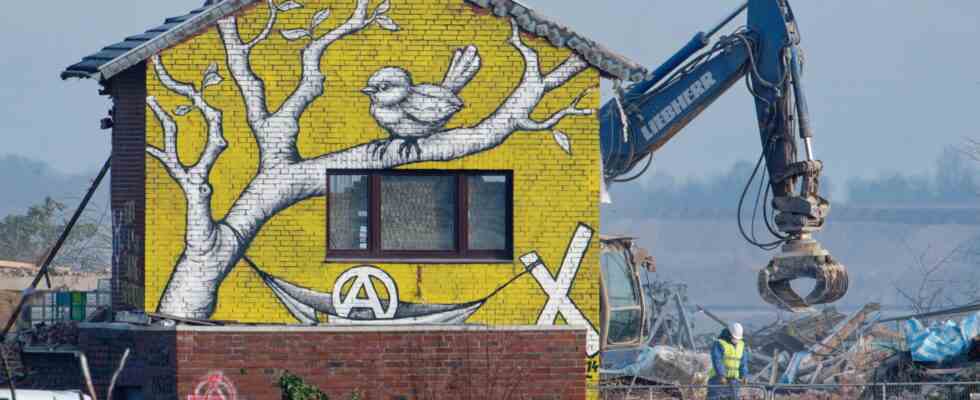Status: 01/21/2023 10:08 a.m
After thousands of people protested against the evacuation of Lützerath, the energy company RWE announced that it wanted to demand compensation from the climate activists. The protest caused significant damage to property.
After the evacuation of Lützerath, the energy company RWE announced civil legal action against demonstrators. “Of course, all disrupters have to reckon with a claim for damages,” said company spokesman Guido Steffen of the “Neue Osnabrücker Zeitung”. However, it is not yet possible to quantify how high these demands could be. According to Steffen, there is still no final damage balance for the complex evacuation.
According to information from the newspaper, RWE recently announced that it would sue a person for 1.4 million euros in damages who had chained himself to the tracks to the Neurath coal-fired power plant in 2021. According to its own statements, RWE therefore had to shut down the power plant.
RWE speaks of “considerable property damage”
According to RWE, there was considerable damage to property – including to the group’s vehicles and systems. In addition, several wells and switchgear were destroyed.
On January 11, the police began to clear the village occupied by climate activists on the edge of the Garzweiler II opencast lignite mine. Thousands of people protested against it – including the climate activists Luisa Neubauer and Greta Thunberg.
The debate about Lützerath
Lützerath, located southwest of Düsseldorf, is to be dredged for coal extraction. For about two years, climate activists had occupied the site to prevent the eviction. Lützerath is now right on the edge of the opencast mine. The protesters see no need to dig up the settlement and burn the coal that is then to be mined there.
However, land and houses belong to the energy company RWE – a compromise between the Essen energy company and the Greens-led economics ministries in the federal government and in North Rhine-Westphalia. According to the agreement of both sides, the end of lignite power generation should come as early as 2030. In addition, the amount of lignite still available for power generation in the Garzweiler II opencast mine is to be halved to around 280 million tons.
For this purpose, five villages in the Rhenish mining area that were previously threatened with resettlement are to be preserved. According to the agreement, Lützerath is not one of these places.

